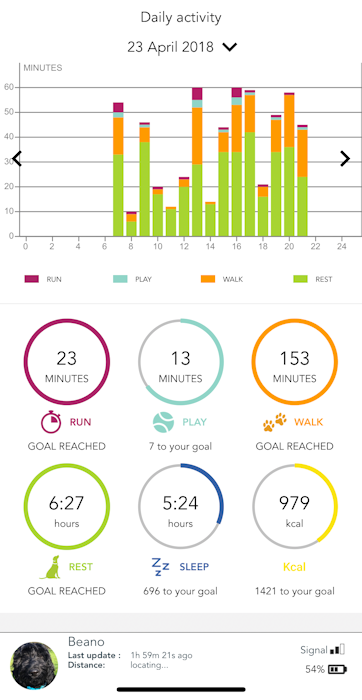Operator Unleashes “V by Vodafone” Initiative
As demand for new smartphones declines in many mature markets, it’s little wonder that mobile operators are starting to think about other connected devices that offer an ongoing revenue stream. “V by Vodafone” is a big bet in this area by one of Europe’s biggest operator groups, and the company should be commended for its efforts.
Vodafone has released a suite of devices that includes the V-Bag, also known as the Alcatel Movetrack; V-Auto, a dongle that lets users connect to their car; V-Camera, which is an Arlo Go 4G connected camera; and the V-Pet, also known as the Kippy Vita dog tracker.
Perhaps more importantly, Vodafone is also offering something called a V-Sim in addition to these devices. This is a SIM card with an affordable monthly subscription of between €4 to €6 a month, specifically designed for connected products other than phones, tablets and mobile Wi-Fi devices. I believe the move is a breakthrough, because historically, if you wanted to use a gadget that needed a mobile connection you had few options but to sign up for a standard — and usually expensive — monthly mobile phone tariff.
The CCS Insight team has bought a number of the V by Vodafone products including the V-Bag and V-Cam and we’ll offer our feedback in a future article. But today, I want to share a few thoughts on the V-Pet.
Kippy Vita pet tracker and my dog Beano wearing the accessory
On the assumption that almost every human in Europe that wants a phone already has one, Vodafone is smart to consider connecting pets. The pet market is an incredibly lucrative segment that has been steadily growing year-on-year. For example, it’s estimated that the US pet industry is worth about $70 billion, taking into account food, toys and other supplies, vet bills, insurance and services like dog walking, day care and kennels.
The four markets where Vodafone has launched its initiative — Germany, Italy, Spain and the UK — have a population of around 30 million dogs. In the UK alone, it’s estimated that 25 percent of households own a dog and there’s a pup-population of 8.5 million.
The V-Pet is a gadget made by a company called Kippy and attaches to a dog’s collar. My initial assessment is that it’s definitely a first-generation product with a few rough edges, particularly when it comes to software and battery life, but it’s a great initial attempt at a product. It allows owners to track their pet’s location using GPS, as well as their activity levels, for example, how long they’ve walked, run, played, rested or slept. Currently the device doesn’t measure distance, but this is more of a limitation in the design of the service rather than a technical weakness. You can think of it as a “Fitbit for dogs” with built-in tracking.
Kippy Vita activity monitor
Whether this is information that dog owners really need is open to discussion, but it’s certainly useful to be able to track your dog if it runs off, see how much exercise it has had so you can decide if it needs a nice long walk at the end of the day, or to check if the dog walker has done their job. I’m hoping to try some other pet trackers so watch this space!
CCS Insight has already identified about 25 pet trackers, which could signal this is a hot category in the emerging technology space. As if to underline this, pet-tracker company Whistle, was bought by pet-food maker Mars for over $100 million in 2016.
After years of hype around the billions of connected objects that the so-called Internet of things is expected to deliver, it’s exciting to see some nascent categories that hold clear potential. I’m convinced that pet tech is one area where we’ll see plenty of innovation over the next decade. Products like the V-Pet are certainly a step in the right direction.


 Twitter
Twitter
 Facebook
Facebook
 LinkedIn
LinkedIn
 Email
Email